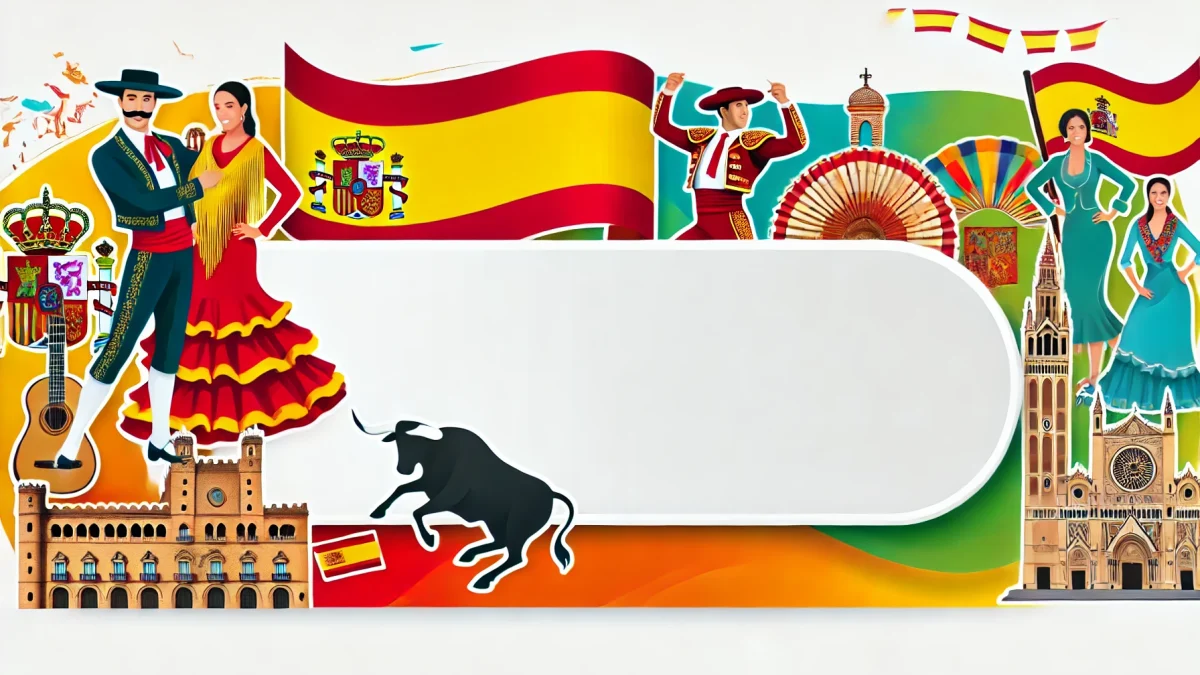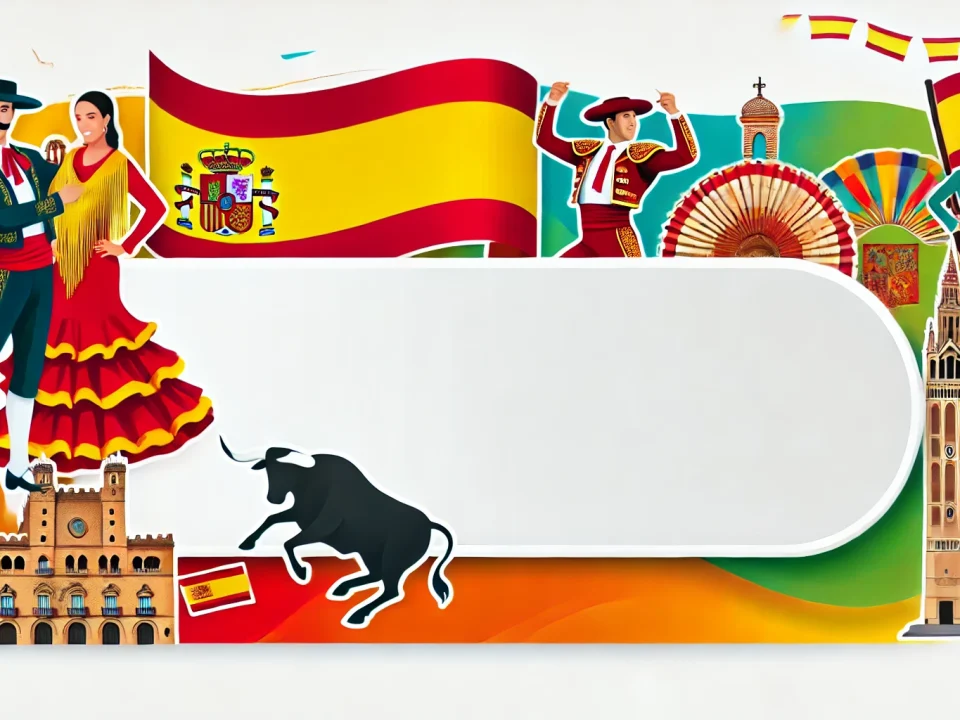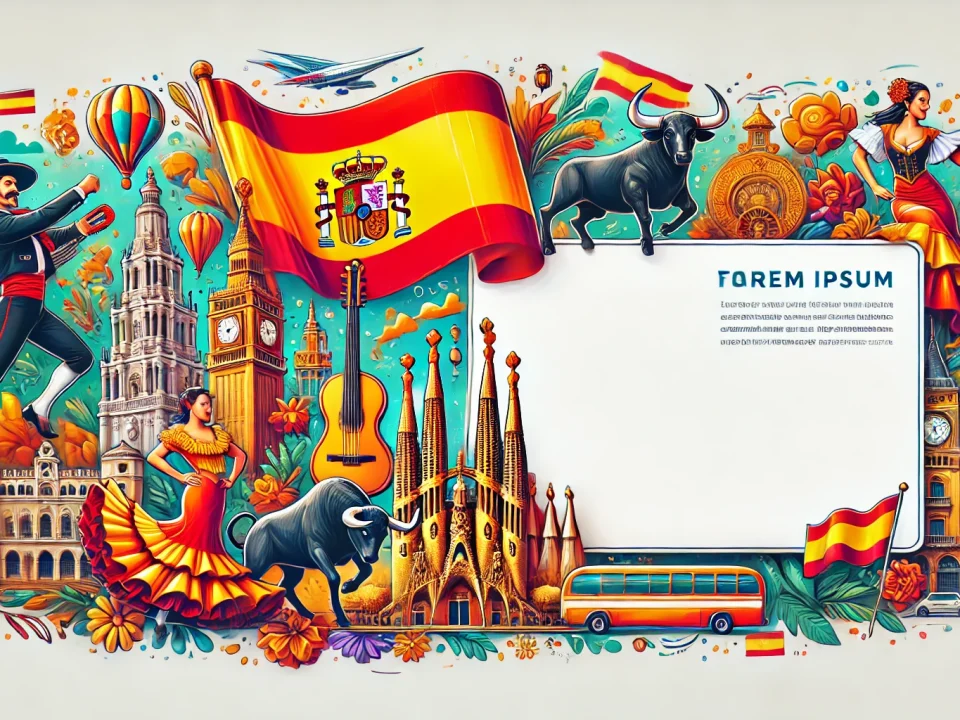
Introduction to Transportation in Spanish (El Transporte)
October 3, 2024
Understanding Time Expressions in Spanish (Expresiones de Tiempo)
October 4, 2024Learning Spanish Places in Town (Lugares en la Ciudad)
Welcome to your beginner’s guide to learning Spanish vocabulary related to places in a town. In this lesson, we’ll explore common locations that you might encounter in a Spanish-speaking city or town, along with their corresponding Spanish terms. This will not only expand your vocabulary but also help you navigate better when traveling. Let’s dive into the essentials of Spanish town vocabulary, complete with grammar tips, pronunciation, and examples.
Why Learn Vocabulary about Places in Town?
Understanding the vocabulary for places in town is crucial for beginners learning Spanish. It forms a foundational part of your language journey and helps you navigate daily life in any Spanish-speaking environment. Knowing how to ask for directions and identify places can be incredibly useful whether you’re exploring new cities or simply practicing your Spanish skills locally.
Common Places in Town (Lugares Comunes en la Ciudad)
Below is a list of common places you might find in any town or city, along with their Spanish translation.
- Library – La Biblioteca
- Example: ¿Dónde está la biblioteca? (Where is the library?)
- Park – El Parque
- Example: Vamos al parque para un picnic. (Let’s go to the park for a picnic.)
- School – La Escuela
- Example: La escuela está cerca de mi casa. (The school is near my house.)
- Hospital – El Hospital
- Example: Necesito ir al hospital. (I need to go to the hospital.)
- Bank – El Banco
- Example: Tengo que ir al banco. (I have to go to the bank.)
- Supermarket – El Supermercado
- Example: El supermercado cierra a las diez. (The supermarket closes at ten.)
- Restaurant – El Restaurante
- Example: Este restaurante tiene buena comida. (This restaurant has good food.)
- Cinema – El Cine
- Example: Vamos al cine a ver una película. (Let’s go to the cinema to watch a movie.)
- Museum – El Museo
- Example: El museo está en el centro de la ciudad. (The museum is in the city center.)
- Post Office – La Oficina de Correos
- Example: Necesito enviar un paquete desde la oficina de correos. (I need to send a package from the post office.)
Pronunciation Tips
Spanish pronunciation is relatively straightforward because it’s a phonetic language; words are pronounced as they’re written. Here are some tips:
- The letter “h” is silent, so hospital is pronounced “ospital”.
- The “j” in cine (cinema) is pronounced like the English “h”, so it’s “see-neh”.
- Roll your “r” slightly for words like parque (park).
Grammar Insight: Definite Articles
In Spanish, nouns are generally accompanied by articles that denote their gender (masculine or feminine) and number (singular or plural). Here’s a quick look at definite articles (the):
- Masculine singular: El (e.g., el parque, el banco)
- Feminine singular: La (e.g., la escuela, la biblioteca)
- Masculine plural: Los (e.g., los parques, los bancos)
- Feminine plural: Las (e.g., las escuelas, las bibliotecas)
Understanding the gender of nouns is crucial when learning Spanish, as it affects other parts of speech like adjectives and verbs, ensuring that your sentences are grammatically correct.
Conversational Phrases
Here are some useful phrases to use when talking about places in town:
- ¿Cómo llego a…? (How do I get to…?)
- Example: ¿Cómo llego a la estación de tren? (How do I get to the train station?)
- ¿Hay un/a … cerca? (Is there a … nearby?)
- Example: ¿Hay un supermercado cerca? (Is there a supermarket nearby?)
- Estoy buscando… (I am looking for…)
- Example: Estoy buscando un hotel. (I am looking for a hotel.)
Practice Makes Perfect
To reinforce your learning, try to create simple sentences using the vocabulary and phrases you’ve learned. Here are a few exercises you can do:
- Translate Sentences:
- I want to go to the museum. → Quiero ir al museo.
- The bank is closed. → El banco está cerrado.
- Ask and Answer:
- Ask a friend or classmate: “¿Dónde está la escuela?” Try answering in Spanish: “La escuela está al lado del parque.”
- Role-Playing:
- Pretend you’re a tourist in a Spanish-speaking city. Practice asking for directions and responding with street names or notable city landmarks.
Conclusion
Mastering basic vocabulary for places in town is an essential step in your Spanish journey. It not only enhances your language skills but also boosts your confidence in navigating a new environment. As you practice, try using these words in context by speaking, writing, and listening to conversations involving these locations. Remember, regular practice is key to language acquisition, so keep exploring and building upon this vocabulary.
Whether you’re traveling to a Spanish-speaking country or interacting with Spanish speakers in your community, this foundational vocabulary will surely come in handy. Keep practicing, and soon you’ll be navigating through any town with ease and confidence! ¡Buena suerte! (Good luck!)


